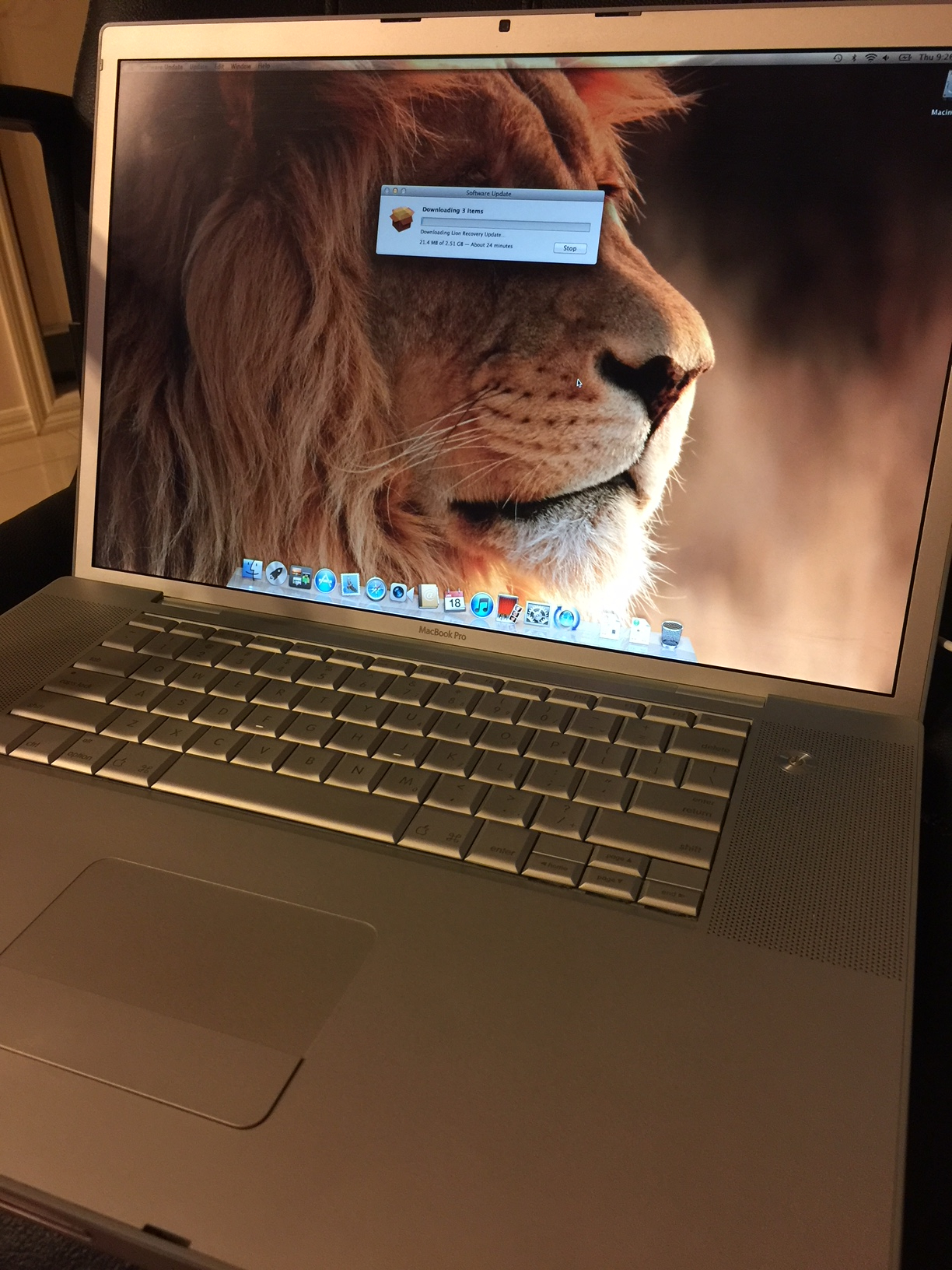
- #HOW TO UPGRADE MY MAC BOOK PRO 17 IN UPGRADE#
- #HOW TO UPGRADE MY MAC BOOK PRO 17 IN PRO#
- #HOW TO UPGRADE MY MAC BOOK PRO 17 IN MAC#
Although the Touch Bar was a big part of Apple’s marketing for the last generation of MacBook Pros, most users didn’t find it very useful. If you’ve got a 2020 or older MacBook Pro, you’ll notice the Touch Bar has gone. With competitors like Dell offering laptops with 17-inch, and even larger displays, Apple had no choice but to size up. Although people love their ultrabooks and small form-factor laptops, many professionals swear by their big screened devices. Much like the iPhone, the MacBook display features a notch at the top which houses the FaceTime HD camera.Ī bigger screen means more real estate to work and play with.
#HOW TO UPGRADE MY MAC BOOK PRO 17 IN PRO#
With Apple offering cheaper alternatives to the 14-inch and 16-inch MacBook Pros, you need a good reason to splash the cash on the latest MacBook Pro.Īlong with the bigger display, Apple also ditched the bezels on the 14-inch screen and finally brought an edge-to-edge display to the MacBook Pro lineup. For only $999 you can pick up an M1-powered MacBook Air, and the previous-generation M1 MacBook Pro is still available for $1299. Thankfully, Apple does offer more budget-friendly options. The price of these laptops might be off-putting to many people. You’ll have to look at these devices as an investment. With the arrival of the 14-inch and 16-inch MacBook Pros at the end of 2021, that call is answered.Īpple’s 14-inch MacBook Pro starts at $1999, and a 16-inch MacBook Pro will run you a whopping $2499. Since the release of the Touch Bar MacBook Pro, Apple enthusiasts have been waiting to see what the next generation of the MacBook would bring. But with more options than ever, are the 14-inch and 16-inch MacBook Pros right for you? The whole thing should take less than five minutes.Apple has brought bigger screens, more power, and an even higher price tag to the MacBook Pro. All you have to do is pop open the access panel, remove the existing RAM modules, add your new modules, and then replace the panel. You can see below that upgrading the RAM in a 27” iMac is a simple job.
#HOW TO UPGRADE MY MAC BOOK PRO 17 IN UPGRADE#
And obviously, you won’t find guides for models that don’t let you upgrade the RAM. Each guide has links to all the components and tools you need to do the job.
#HOW TO UPGRADE MY MAC BOOK PRO 17 IN MAC#
Head to iFixit and find the guides for your Mac model. They also sell all the tools and components you need to make the upgrade. They have detailed guides for replacing the RAM in any Mac where it is possible. Instead, I’m going to pass you over to our friends at iFixit who specialize in this sort of thing. It’s far beyond the scope of this article to talk you through every possible Mac RAM upgrade.


When you know what model you have, you can find out whether you can upgrade the RAM yourself. I’ve got MacBook Pro (Retina, 15-inch, Mid 2015).

On the Overview tab, you’ll see your Mac’s exact model. To find out exactly what Mac you have, click the Apple logo in the top left corner of the menu bar, and then select the “About This Mac” command. A 21.5” iMac from 2012 and a 21.5” Retina iMac from 2016 might look the same at a casual glance, but they’re totally different computers. Macs are regularly refreshed and even if newer models don’t look all that different, big changes can happen on the inside. If you’ve got an old Mac that’s out of warranty, you can take more risks than if you’re thinking about tearing open a brand new MacBook Pro. Adding more RAM can breath new life into an old Mac.Īs always, make sure you know what you’re doing before diving in. While Macs certainly aren’t as easy to upgrade as a typical PC, it’s surprisingly simple to upgrade some components like RAM-especially if you’ve got a Mac desktop or an older laptop.


 0 kommentar(er)
0 kommentar(er)
